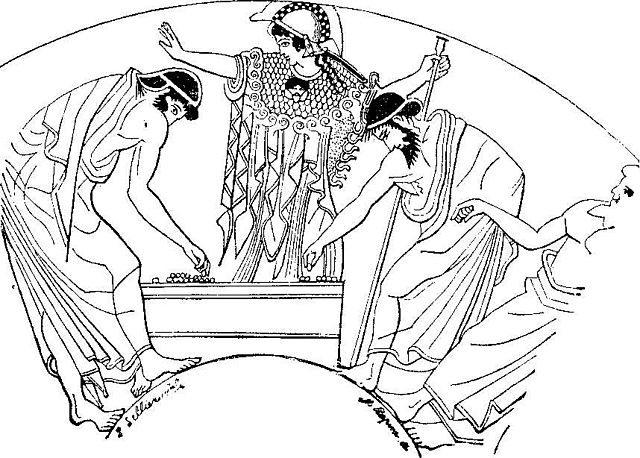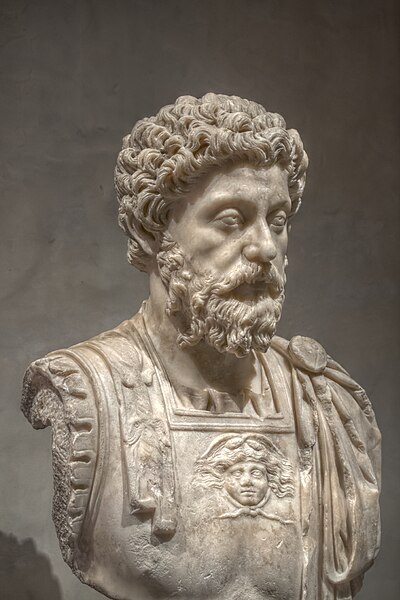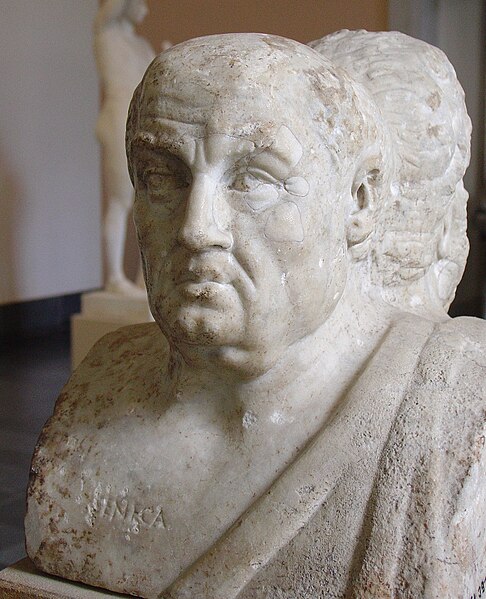Chrysippus of Soli was a Greek Stoic philosopher. He was a native of Soli, Cilicia, but moved to Athens as a young man, where he became a pupil of the Stoic philosopher Cleanthes. When Cleanthes died, around 230 BC, Chrysippus became the third head of the Stoic school. A prolific writer, Chrysippus expanded the fundamental doctrines of Cleanthes' mentor Zeno of Citium, the founder and first head of the school, which earned him the title of the Second Founder of Stoicism.
Roman copy of a Hellenistic bust of Chrysippus (British Museum)
Chrysippus argued dogs reason.
A partial marble bust of Chrysippus that is a Roman copy of a Hellenistic original (Louvre Museum).
Cleromancy in ancient Greece. Chrysippus accepted divination as part of the causal chain of fate.
Stoicism is a school of Hellenistic philosophy that flourished in Ancient Greece and Ancient Rome. The Stoics believed that the practice of virtue is enough to achieve eudaimonia: a well-lived life. The Stoics identified the path to achieving it with a life spent practicing the four virtues in everyday life: wisdom, courage, temperance or moderation, and justice, and living in accordance with nature. It was founded in the ancient Agora of Athens by Zeno of Citium around 300 BC.
A bust of Zeno of Citium, considered the founder of Stoicism
Chrysippus, the third leader of the Stoic school, wrote over 300 books on logic. His works were lost, but an outline of his logical system can be reconstructed from fragments and testimony.
Marcus Aurelius, the Stoic Roman emperor
A bust of Seneca, a Stoic philosopher from the Roman empire who served as an adviser to Nero







